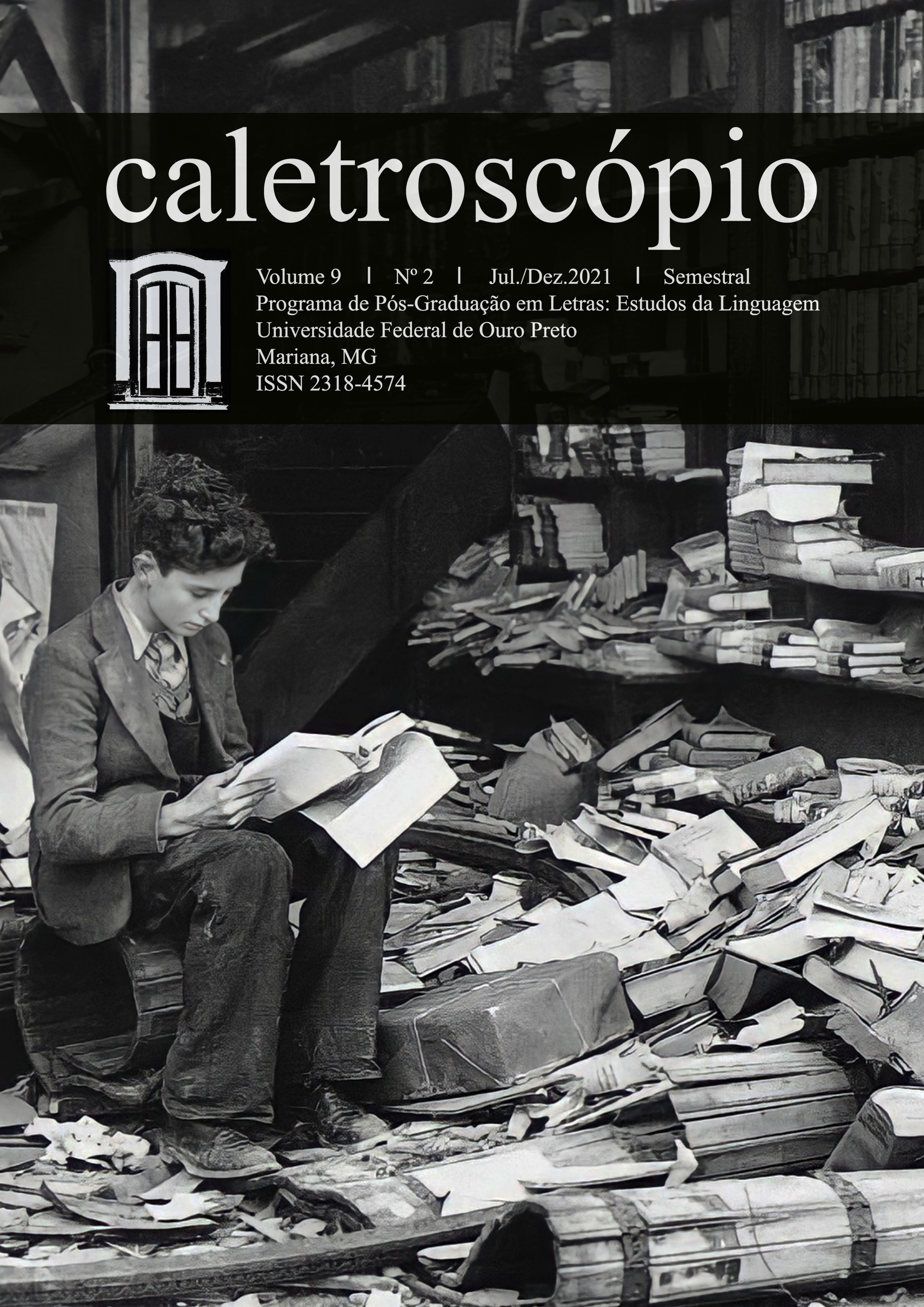As canções como unidade de ensino na sala de aula de Francês como Língua Estrangeira
Abstract
The article seeks to investigate the contributions of songs to the teaching and learning of FLE. And more specifically: Identify song contributions to the teaching and learning of FLE; Analyze and prove the expansion of cultural and linguistic elements from the work with the songs; Relate work with songs to playfulness and FLE classroom interaction. Therefore, it intends to develop a qualitative research through the collection of bibliographic-descriptive data, since it is intended to interpret the obtained data with an inductive focus, in order to prove the points proposed in the objectives of this work. The bibliographic review demonstrates that music develops aspects related to language as well as cognitive aspects, which is a tool that, therefore, brings contributions to the teaching and learning of FLE, expands the student's cultural and linguistic elements and, also, provides playfulness and interaction in the classroom.
Downloads
References
BEAUMONT-JAMES, C. Le Français Chanté ou La Langue Enchantée des Chansons. Paris, L’Harmattan, 1999.
BRASIL. Ministério da Educação. Base Nacional Comum Curricular. Brasília, 2018.
BRASIL. Ministério da Educação, Secretaria de Educação Média e Tecnológica. Parâmetros curriculares nacionais, códigos e suas tecnologias. Língua estrangeira moderna. Brasília: MEC, 1999.
BRÉSCIA, V. L. P. Educação Musical: bases psicológicas e ação preventiva. São Paulo: Átomo, 2003.
DESLAURIES, J. P. Recherche Qualitative. Montreal. Mc Graw Hill, 1991.
DUMONT, P. Le Français par la Chanson: nouvelles approches de l’enseignement de la langue et de la civilisation françaises à traves la chanson populaire contemporaine. Paris, L’Harmattan, 1998.
GIL, A. C. Como elaborar projetos de pesquisa. 5ª ed. São Paulo: Atlas, 2008.
KUNS, M. A. GRÉGIS, R. A. Intertextualidade e Aquisição da Linguagem: Diálogos entre o Cinema e a literatura Inglesa. Prâksis - Revista do ICHLA, 2010. Disponível em: https://periodicos.feevale.br/seer/index.php/revistapraksis/article/download/702/785. Acesso em: 20 fev. 2020.
MINISTÉRIO DA EDUCAÇÃO/GAERI. QUADRO EUROPEU COMUM DE REFERÊNCIA PARA AS LÍNGUAS – Aprendizagem, ensino, avaliação. 1ª ed. Edições ASA, 2001. Disponível em: area.dge.mec.pt/gramatica/Quadro_Europeu_total.pdf. Acesso em: 10 mar. 2019.
NOGUEIRA, Z. P. Atividades lúdicas no ensino/aprendizagem de língua inglesa. Disponível em: http://www.diaadiaeducacao.pr.gov.br/portals/pde/arquivos/967-4.pdf. Acesso em: 01 set. 2020.
VYGOTSKY, L.S. A formação social da mente: o desenvolvimento dos processos psicológicos superiores. 4ª ed. São Paulo: Martins Fontes, 1991.
ZEDDA, P. La langue chantée: un outil efficace pour l'apprentissage et la correction phonétique. Les Cahiers de l’Acedle, Lyon, n. 2, juin 2005. Disponível em: http://legoutdufrancais.org/wp-content/uploads/La-langue-chant%C3%A9e.pdf. Acesso em: 01 set. 2020.
The publication Caletroscopio shall retain for a period of three years all authorial rights for works accepted for publication: articles, reviews, translations, etc. Outside this restriction, these works are licenced through Licença Creative Commons-Atribuição-NãoComercial-SemDerivações 4.0 Internacional.
Upon expiry of this period, in the event that the author publishes the text, even when making alterations to the original, we would ask authors to include as a footnote, the information that a previous version of the article was published in the Revista Caletroscópio, citing the appropriate references.


